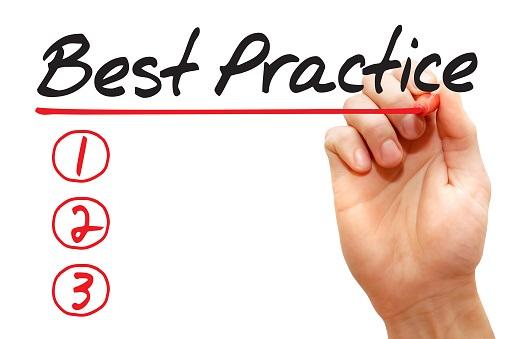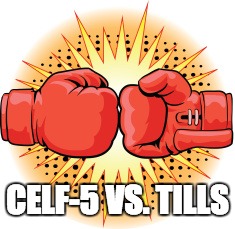 Those of you familiar with my blog, know that a number of my posts take on a form of extended responses to posts and comments on social media which deal with certain questionable speech pathology trends and ongoing issues (e.g., controversial diagnostic labels, questionable recommendations, non-evidence based practices, etc.). So, today, I’d like to talk about sweeping general recommendations as pertaining to literacy interventions. Continue reading But is this the Best Practice Recommendation?
Those of you familiar with my blog, know that a number of my posts take on a form of extended responses to posts and comments on social media which deal with certain questionable speech pathology trends and ongoing issues (e.g., controversial diagnostic labels, questionable recommendations, non-evidence based practices, etc.). So, today, I’d like to talk about sweeping general recommendations as pertaining to literacy interventions. Continue reading But is this the Best Practice Recommendation?
Category: Evidence-Based Practice (EBP)
Help, My Child is Receiving All These Therapies But It’s NOT Helping
 On a daily basis I receive emails and messages from concerned parents and professionals, which read along these lines: “My child/student has been diagnosed with: dyslexia, ADHD, APD etc., s/he has been receiving speech, OT, vision, biofeedback, music therapies, etc. but nothing seems to be working.”
On a daily basis I receive emails and messages from concerned parents and professionals, which read along these lines: “My child/student has been diagnosed with: dyslexia, ADHD, APD etc., s/he has been receiving speech, OT, vision, biofeedback, music therapies, etc. but nothing seems to be working.”
Up until now, I have been providing individualized responses to such queries, however, given the unnerving similarity of all the received messages, today I decided to write this post, so other individuals with similar concerns can see my response. Continue reading Help, My Child is Receiving All These Therapies But It’s NOT Helping
Dear SLPs, Try Asking This Instead
 I frequently see numerous posts on Facebook that ask group members, “What are your activities/goals for a particular age group (e.g., preschool, middle school, high school, etc.) or a particular disorder (e.g., Down Syndrome)? After seeing these posts appear over and over again in a variety of groups, I decided to write my own post on this topic, explaining why asking such broad questions will not result in optimal therapeutic interventions for the clients in question. Continue reading Dear SLPs, Try Asking This Instead
I frequently see numerous posts on Facebook that ask group members, “What are your activities/goals for a particular age group (e.g., preschool, middle school, high school, etc.) or a particular disorder (e.g., Down Syndrome)? After seeing these posts appear over and over again in a variety of groups, I decided to write my own post on this topic, explaining why asking such broad questions will not result in optimal therapeutic interventions for the clients in question. Continue reading Dear SLPs, Try Asking This Instead
Speech, Language, and Literacy Fun with Karma Wilson’s “Bear” Books
 In my previous posts, I’ve shared my thoughts about picture books being an excellent source of materials for assessment and treatment purposes. They can serve as narrative elicitation aids for children of various ages and intellectual abilities, ranging from pre-K through fourth grade. They are also incredibly effective treatment aids for addressing a variety of speech, language, and literacy goals that extend far beyond narrative production. Continue reading Speech, Language, and Literacy Fun with Karma Wilson’s “Bear” Books
In my previous posts, I’ve shared my thoughts about picture books being an excellent source of materials for assessment and treatment purposes. They can serve as narrative elicitation aids for children of various ages and intellectual abilities, ranging from pre-K through fourth grade. They are also incredibly effective treatment aids for addressing a variety of speech, language, and literacy goals that extend far beyond narrative production. Continue reading Speech, Language, and Literacy Fun with Karma Wilson’s “Bear” Books
Why “good grades” do not automatically rule out “adverse educational impact”
 As a speech-language pathologist (SLP) working with school-age children, I frequently assess students whose language and literacy abilities adversely impact their academic functioning. For the parents of school-aged children with suspected language and literacy deficits as well as for the SLPs tasked with screening and evaluating them, the concept of ‘academic impact’ comes up on daily basis. In fact, not a day goes by when I do not see a variation of the following question: “Is there evidence of academic impact?”, being discussed in a variety of Facebook groups dedicated to speech pathology issues. Continue reading Why “good grades” do not automatically rule out “adverse educational impact”
As a speech-language pathologist (SLP) working with school-age children, I frequently assess students whose language and literacy abilities adversely impact their academic functioning. For the parents of school-aged children with suspected language and literacy deficits as well as for the SLPs tasked with screening and evaluating them, the concept of ‘academic impact’ comes up on daily basis. In fact, not a day goes by when I do not see a variation of the following question: “Is there evidence of academic impact?”, being discussed in a variety of Facebook groups dedicated to speech pathology issues. Continue reading Why “good grades” do not automatically rule out “adverse educational impact”
What Makes an Independent Speech-Language-Literacy Evaluation a GOOD Evaluation?
 Three years ago I wrote a blog post entitled: “Special Education Disputes and Comprehensive Language Testing: What Parents, Attorneys, and Advocates Need to Know“. In it, I used 4 very different scenarios to illustrate the importance of comprehensive language evaluations for children with subtle language and learning needs. Today I would like to expound more on that post in order to explain, what actually constitutes a good independent comprehensive assessment. Continue reading What Makes an Independent Speech-Language-Literacy Evaluation a GOOD Evaluation?
Three years ago I wrote a blog post entitled: “Special Education Disputes and Comprehensive Language Testing: What Parents, Attorneys, and Advocates Need to Know“. In it, I used 4 very different scenarios to illustrate the importance of comprehensive language evaluations for children with subtle language and learning needs. Today I would like to expound more on that post in order to explain, what actually constitutes a good independent comprehensive assessment. Continue reading What Makes an Independent Speech-Language-Literacy Evaluation a GOOD Evaluation?
What are They Trying To Say? Interpreting Music Lyrics for Figurative Language Acquisition Purposes
 In my last post, I described how I use obscurely worded newspaper headlines to improve my students’ interpretation of ambiguous and figurative language. Today, I wanted to further delve into this topic by describing the utility of interpreting music lyrics for language therapy purposes. I really like using music lyrics for language treatment purposes. Not only do my students and I get to listen to really cool music, but we also get an opportunity to define a variety of literary devices (e.g., hyperboles, similes, metaphors, etc.) as well as identify them and interpret their meaning in music lyrics. Continue reading What are They Trying To Say? Interpreting Music Lyrics for Figurative Language Acquisition Purposes
In my last post, I described how I use obscurely worded newspaper headlines to improve my students’ interpretation of ambiguous and figurative language. Today, I wanted to further delve into this topic by describing the utility of interpreting music lyrics for language therapy purposes. I really like using music lyrics for language treatment purposes. Not only do my students and I get to listen to really cool music, but we also get an opportunity to define a variety of literary devices (e.g., hyperboles, similes, metaphors, etc.) as well as identify them and interpret their meaning in music lyrics. Continue reading What are They Trying To Say? Interpreting Music Lyrics for Figurative Language Acquisition Purposes
Have I Got This Right? Developing Self-Questioning to Improve Metacognitive and Metalinguistic Skills
 Many of my students with Developmental Language Disorders (DLD) lack insight and have poorly developed metalinguistic (the ability to think about and discuss language) and metacognitive (think about and reflect upon own thinking) skills. This, of course, creates a significant challenge for them in both social and academic settings. Not only do they have a poorly developed inner dialogue for critical thinking purposes but they also because they present with significant self-monitoring and self-correcting challenges during speaking and reading tasks. Continue reading Have I Got This Right? Developing Self-Questioning to Improve Metacognitive and Metalinguistic Skills
Many of my students with Developmental Language Disorders (DLD) lack insight and have poorly developed metalinguistic (the ability to think about and discuss language) and metacognitive (think about and reflect upon own thinking) skills. This, of course, creates a significant challenge for them in both social and academic settings. Not only do they have a poorly developed inner dialogue for critical thinking purposes but they also because they present with significant self-monitoring and self-correcting challenges during speaking and reading tasks. Continue reading Have I Got This Right? Developing Self-Questioning to Improve Metacognitive and Metalinguistic Skills
Dear Reading Specialist, May I Ask You a Few Questions?
 Because the children I assess, often require supplementary reading instruction services, many parents frequently ask me how they can best determine if a reading specialist has the right experience to help their child learn how to read. So today’s blog post describes what type of knowledge reading specialists ought to possess and what type of questions parents (and other professionals) can ask them in order to determine their approaches to treating literacy-related difficulties of struggling learners. Continue reading Dear Reading Specialist, May I Ask You a Few Questions?
Because the children I assess, often require supplementary reading instruction services, many parents frequently ask me how they can best determine if a reading specialist has the right experience to help their child learn how to read. So today’s blog post describes what type of knowledge reading specialists ought to possess and what type of questions parents (and other professionals) can ask them in order to determine their approaches to treating literacy-related difficulties of struggling learners. Continue reading Dear Reading Specialist, May I Ask You a Few Questions?
Free Literacy Resources for Parents and Professionals
 SLPs are constantly on the lookout for good quality affordable materials in the area of literacy. However, what many clinicians may not realize is that there are massive amounts of FREE evidence-based literacy-related resources available online for their use. These materials can be easily adapted or implemented as is, by parents, teachers, speech-language pathologists, as well as other literacy-focused professionals (e.g., tutors, etc.).
SLPs are constantly on the lookout for good quality affordable materials in the area of literacy. However, what many clinicians may not realize is that there are massive amounts of FREE evidence-based literacy-related resources available online for their use. These materials can be easily adapted or implemented as is, by parents, teachers, speech-language pathologists, as well as other literacy-focused professionals (e.g., tutors, etc.).
Below, I have compiled a rather modest list of my preferred resources (including a few articles) for children aged Pre-K-12 grade pertaining to the following literacy-related areas: Continue reading Free Literacy Resources for Parents and Professionals